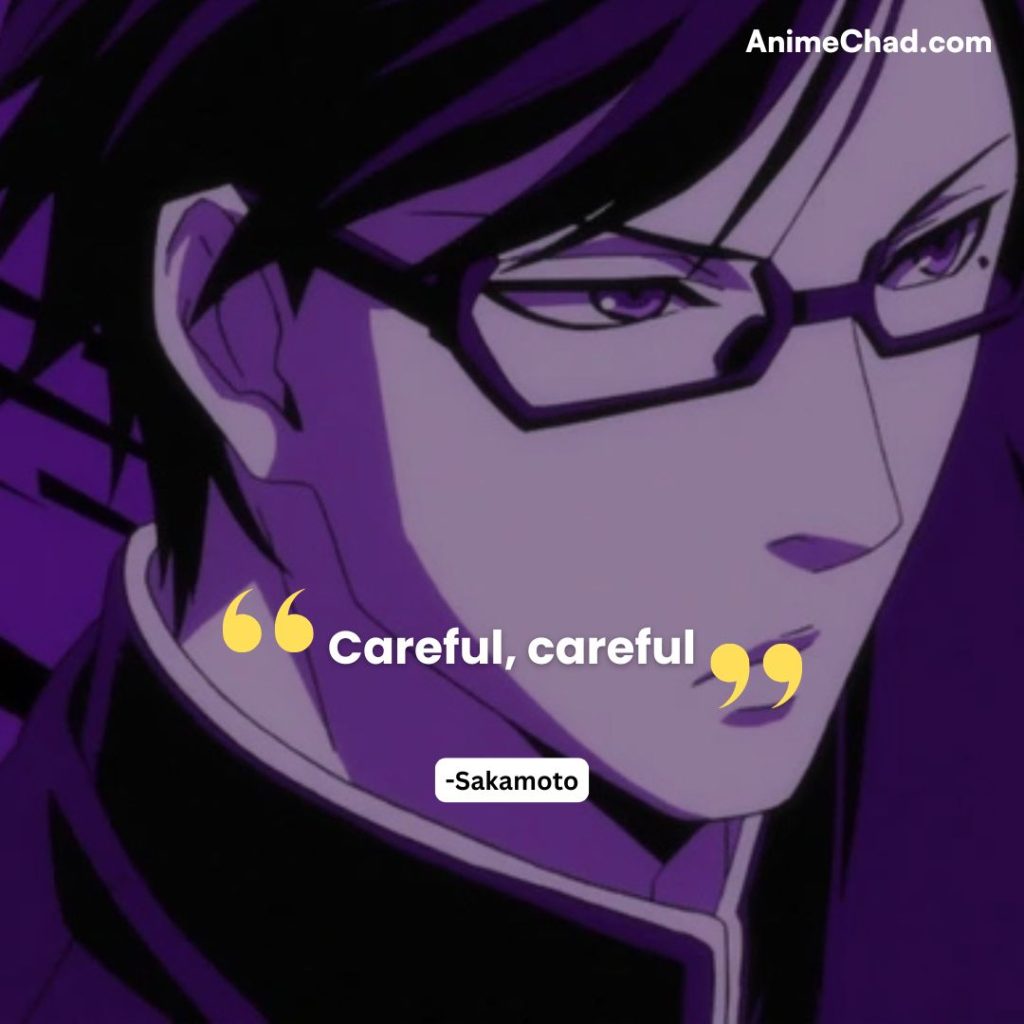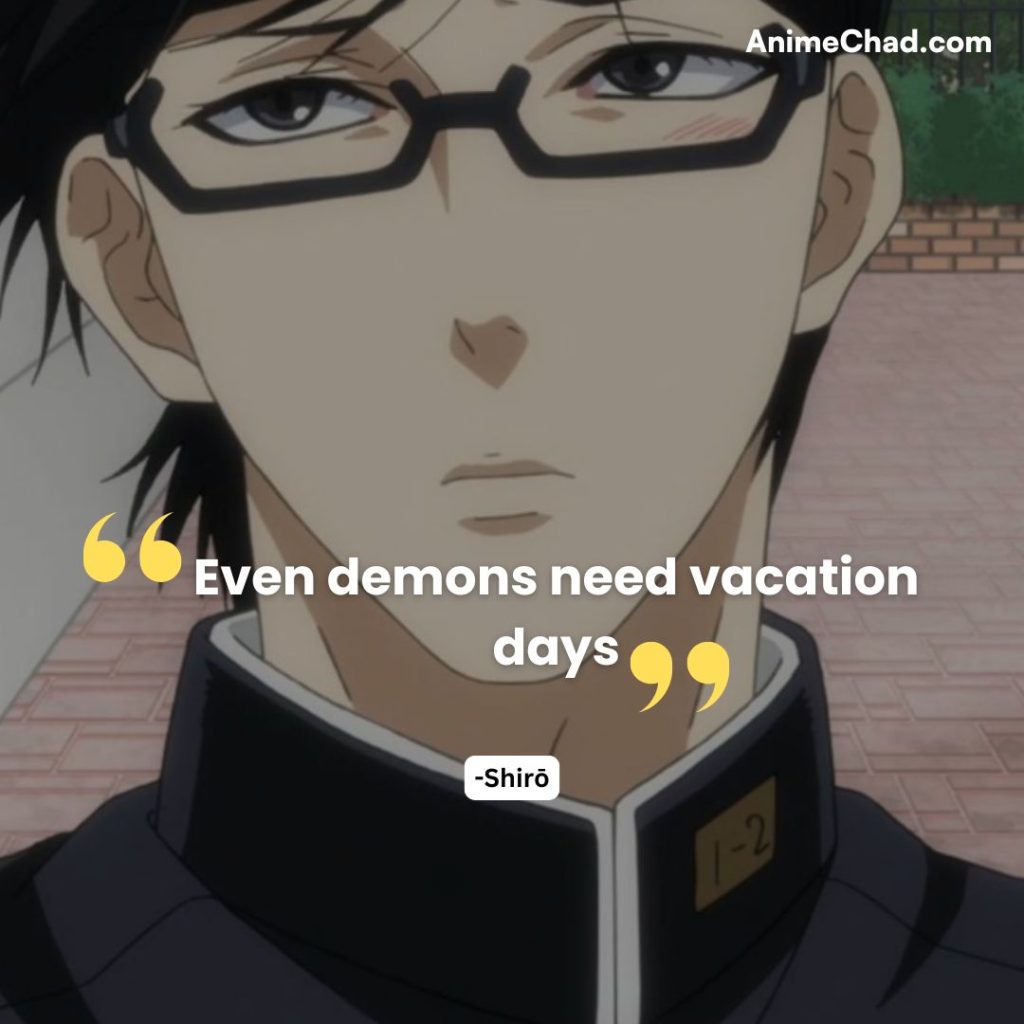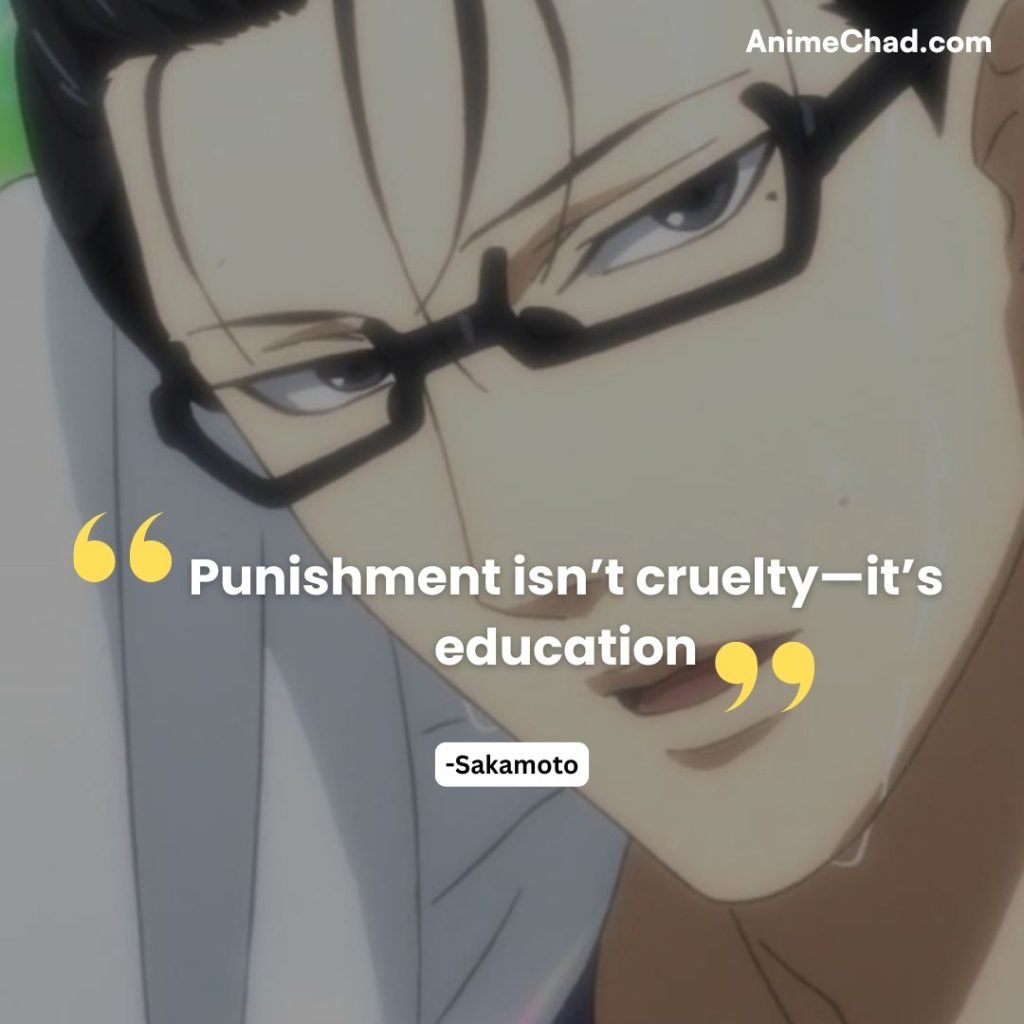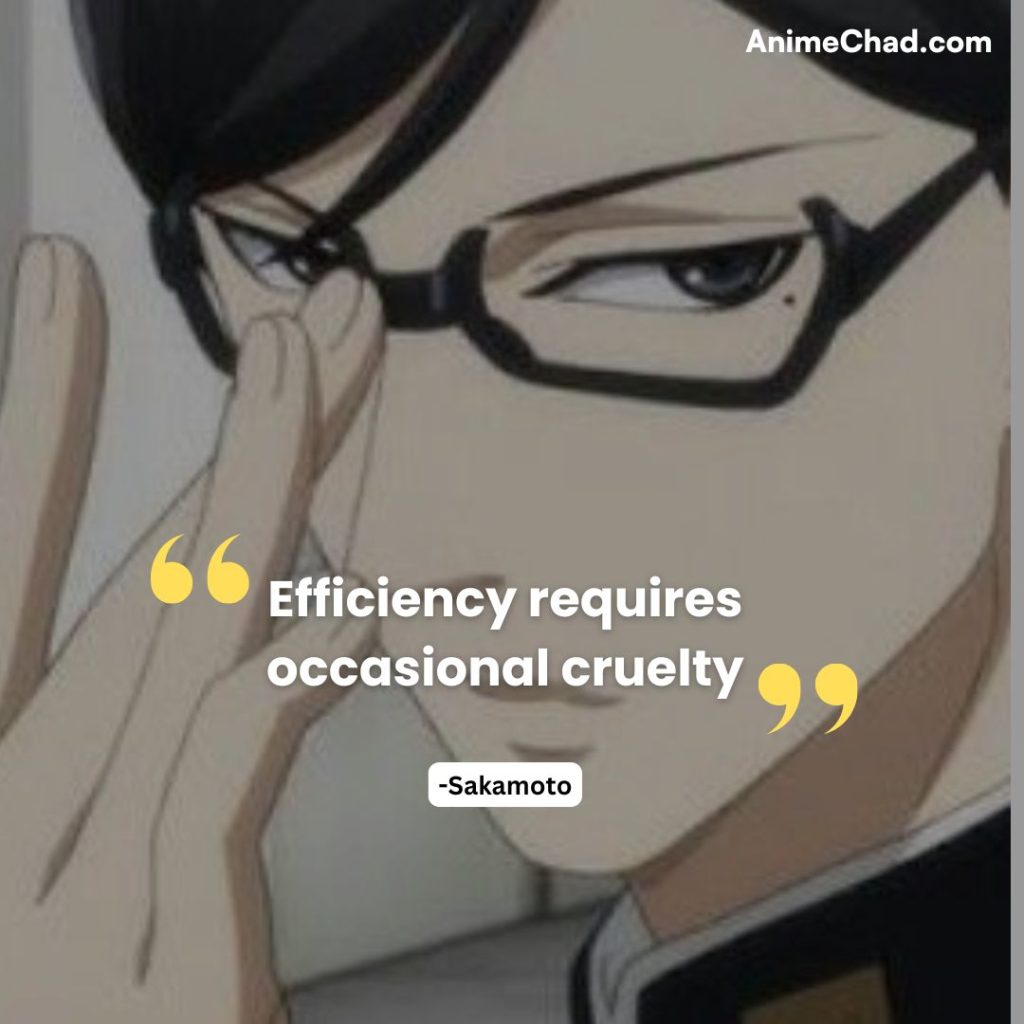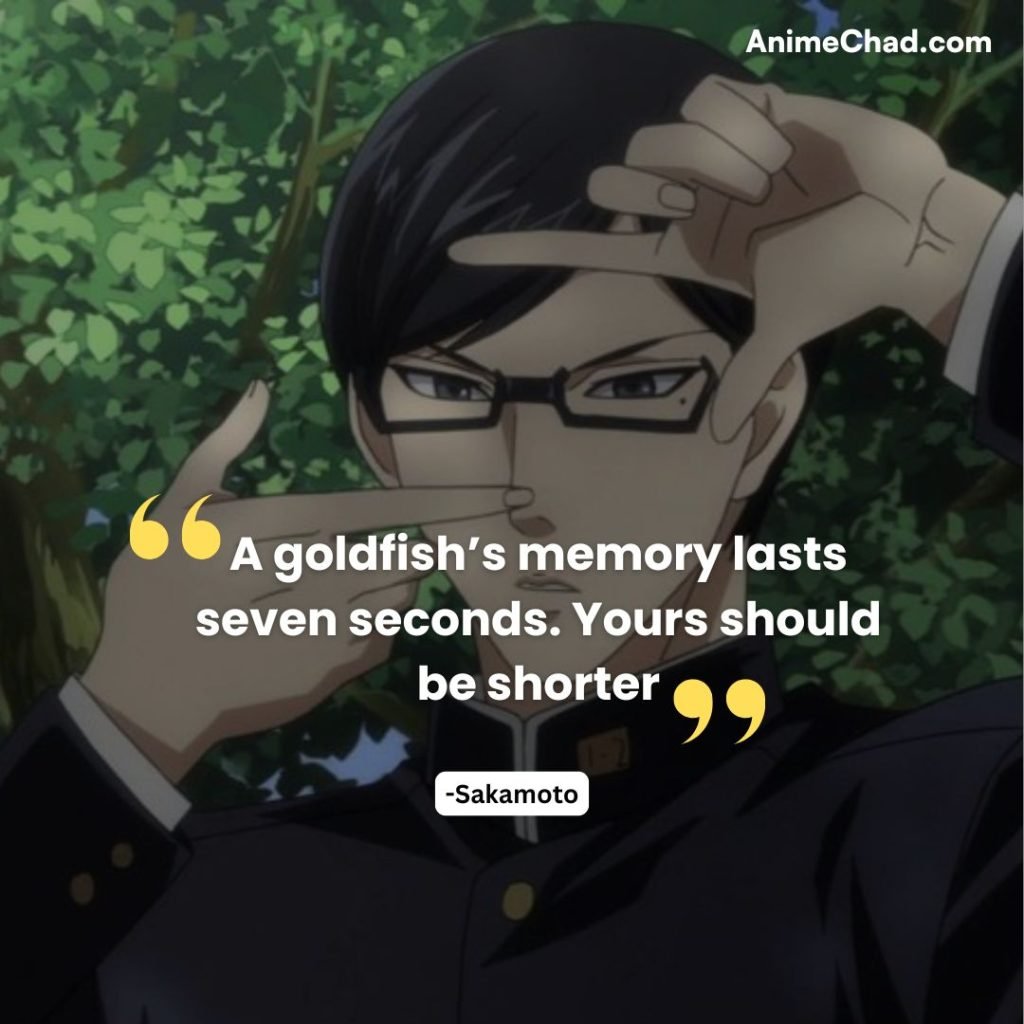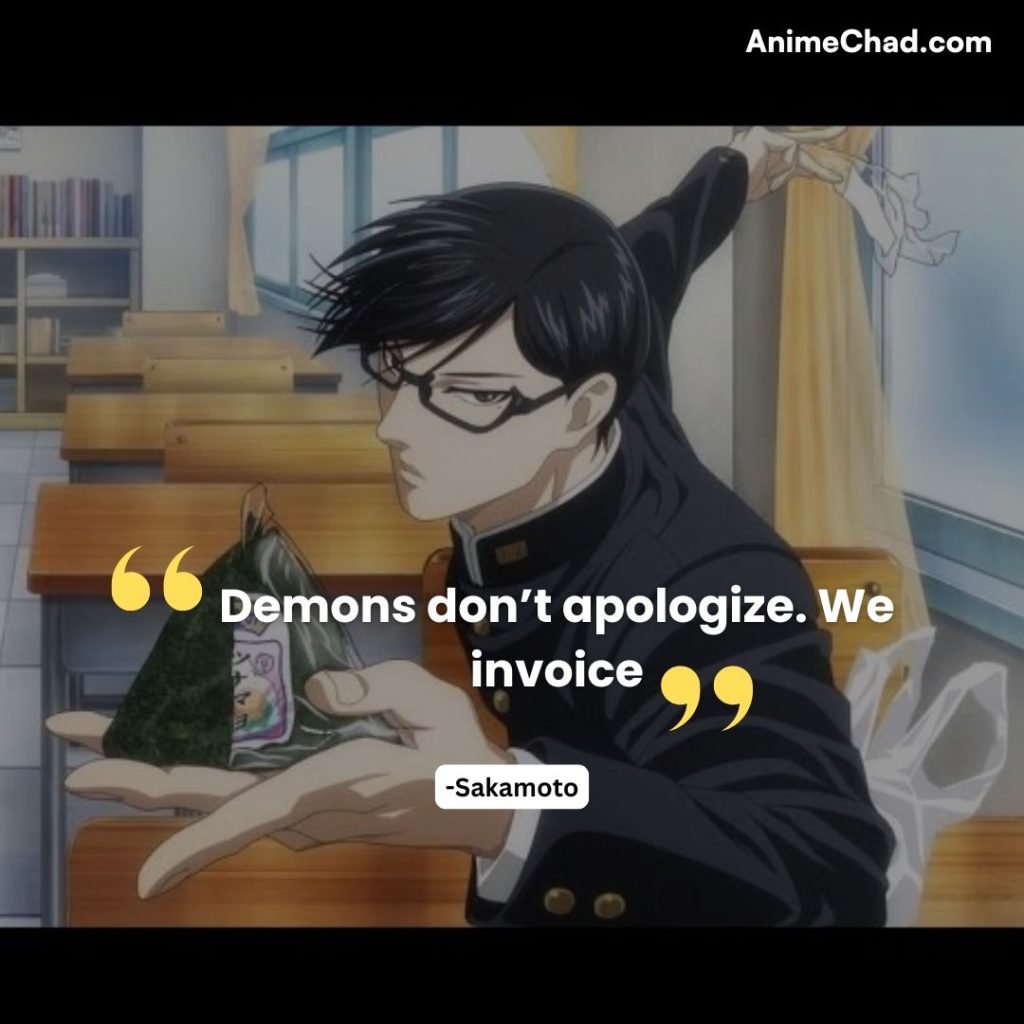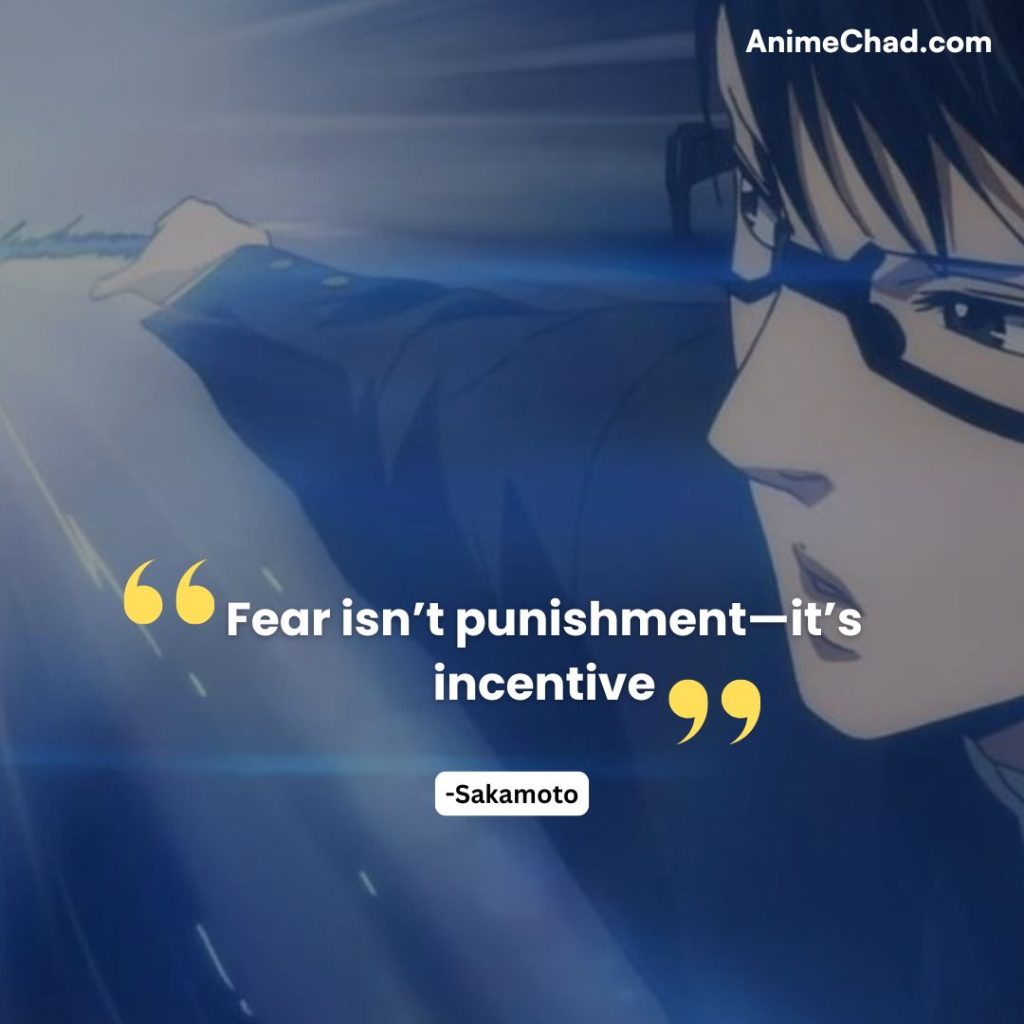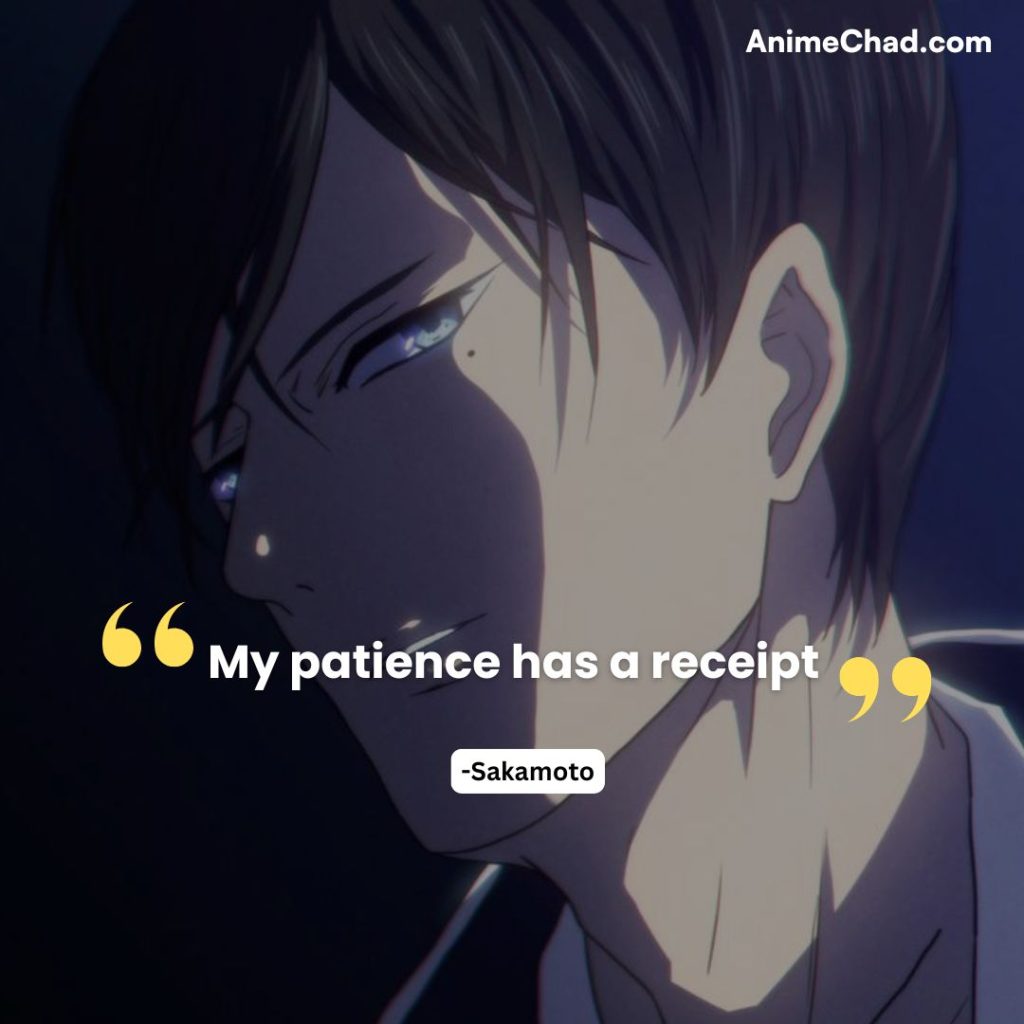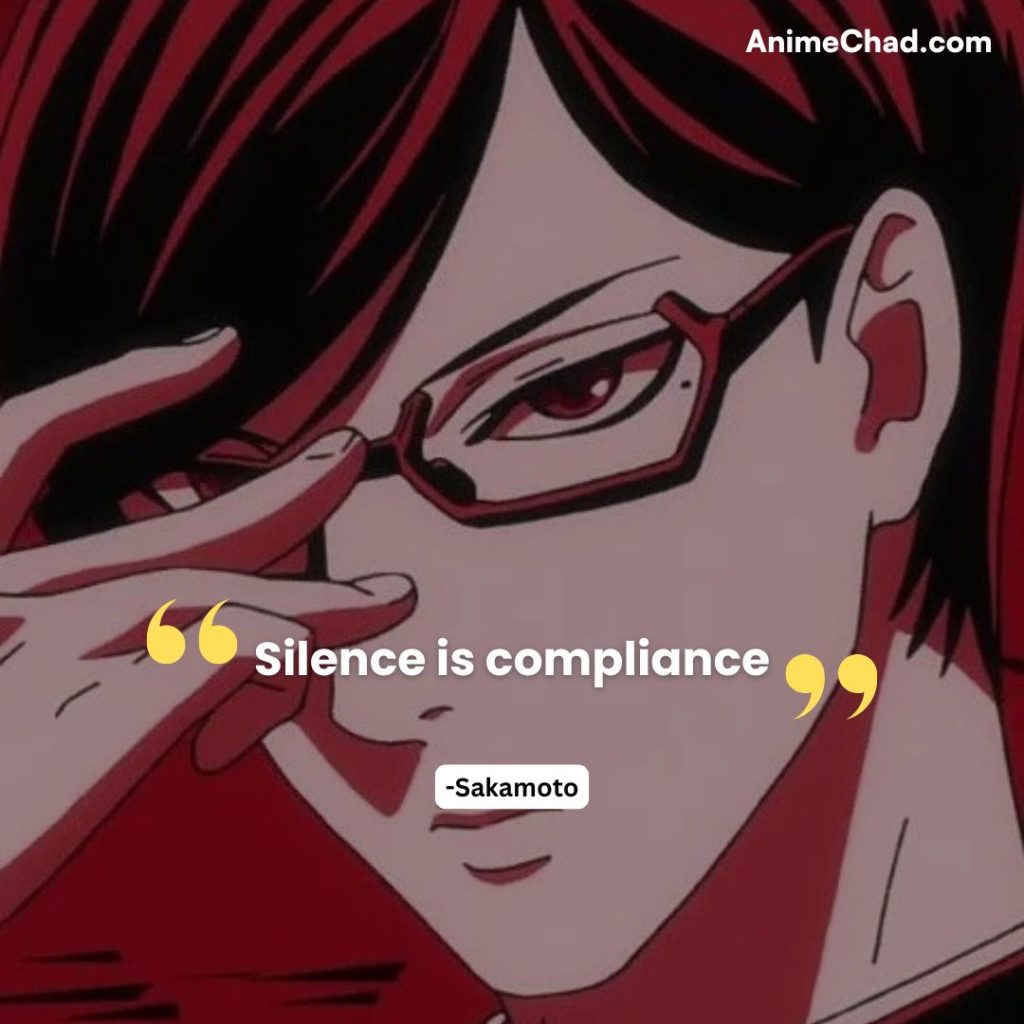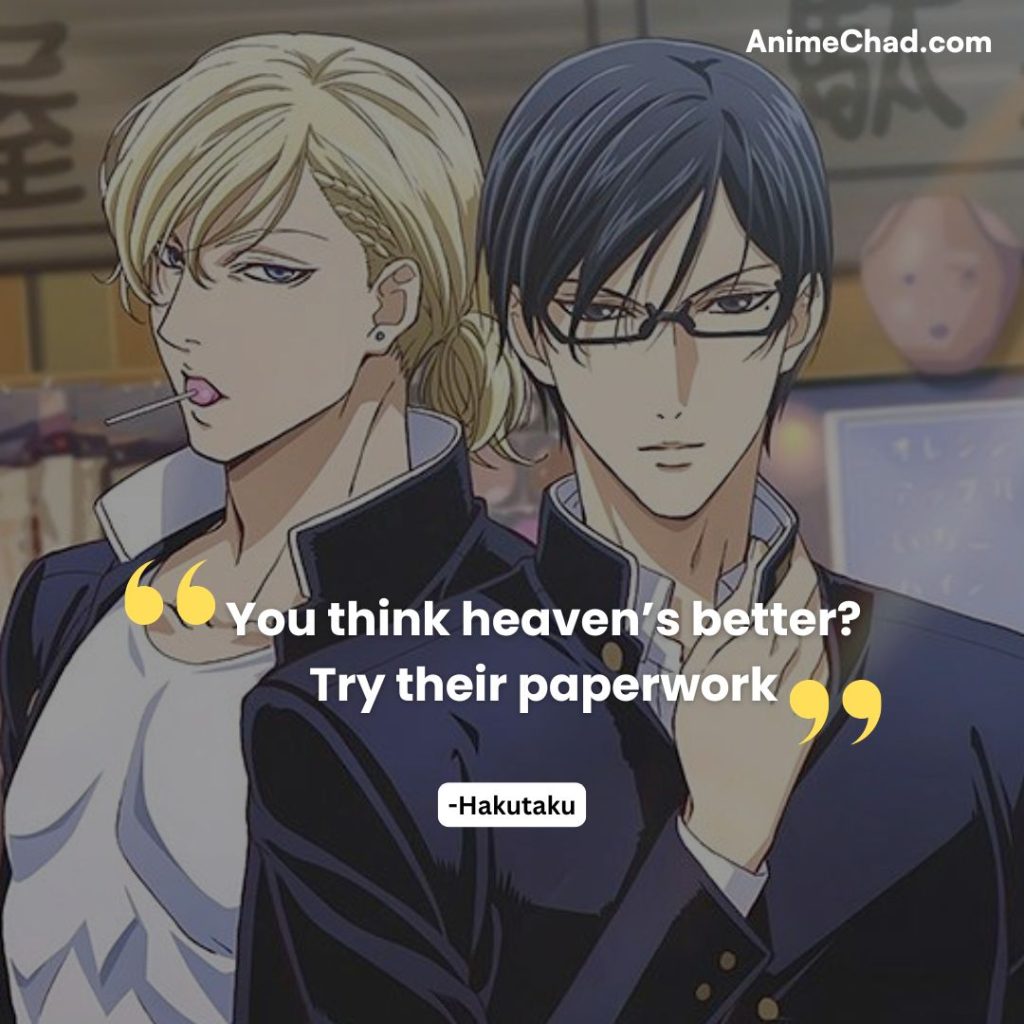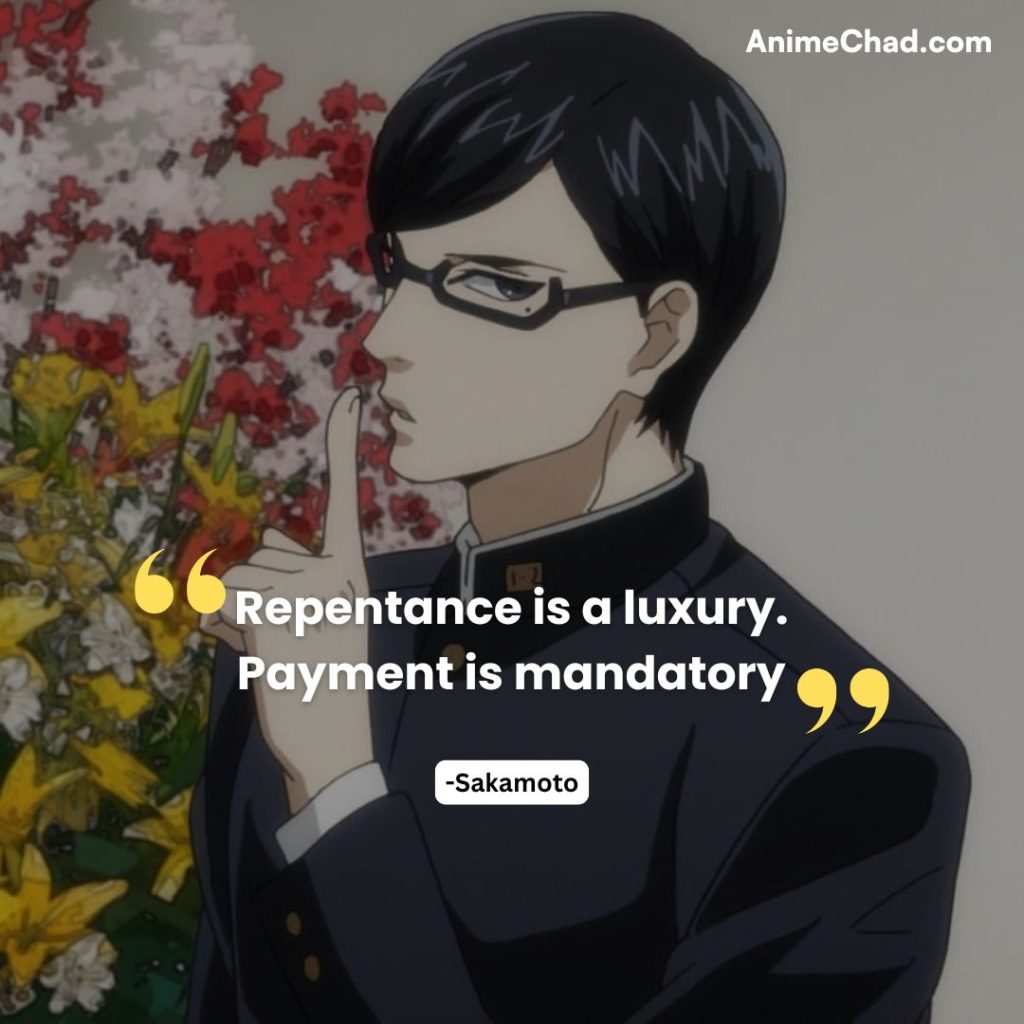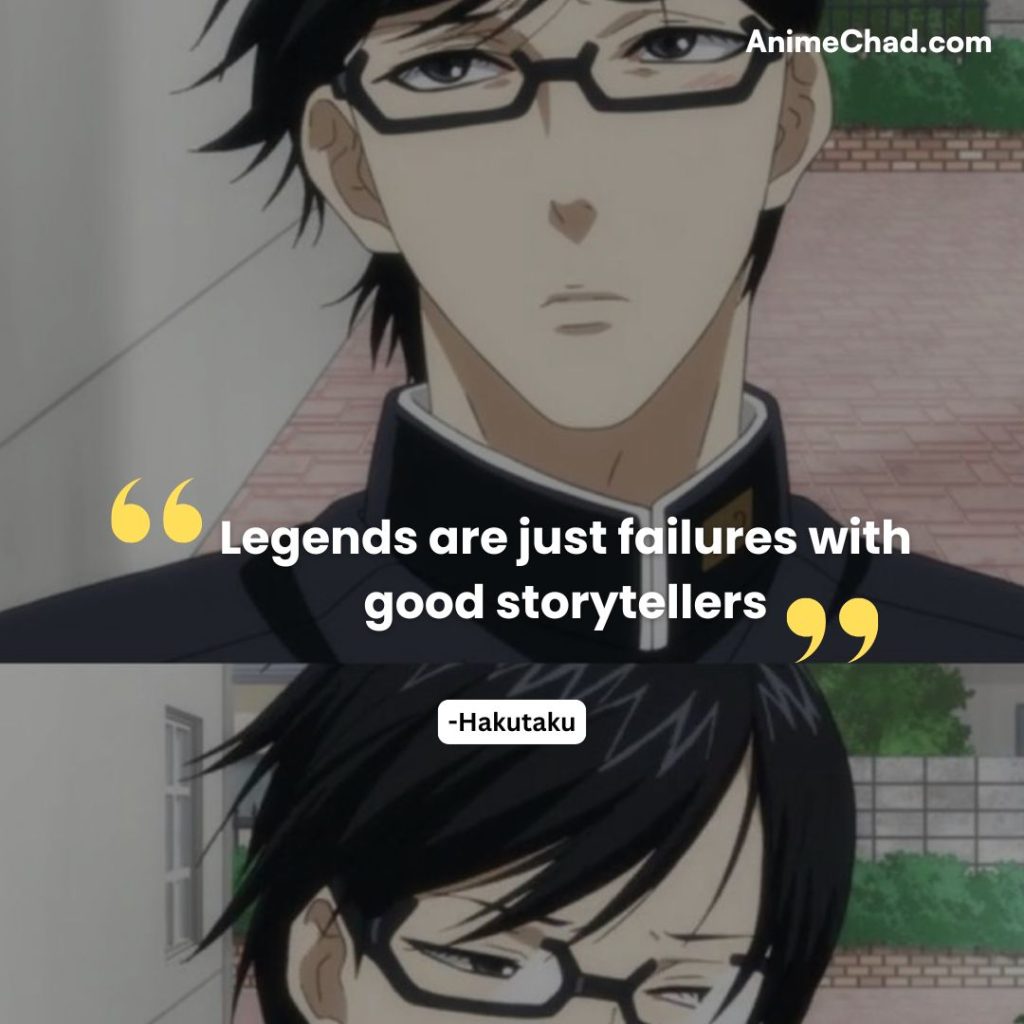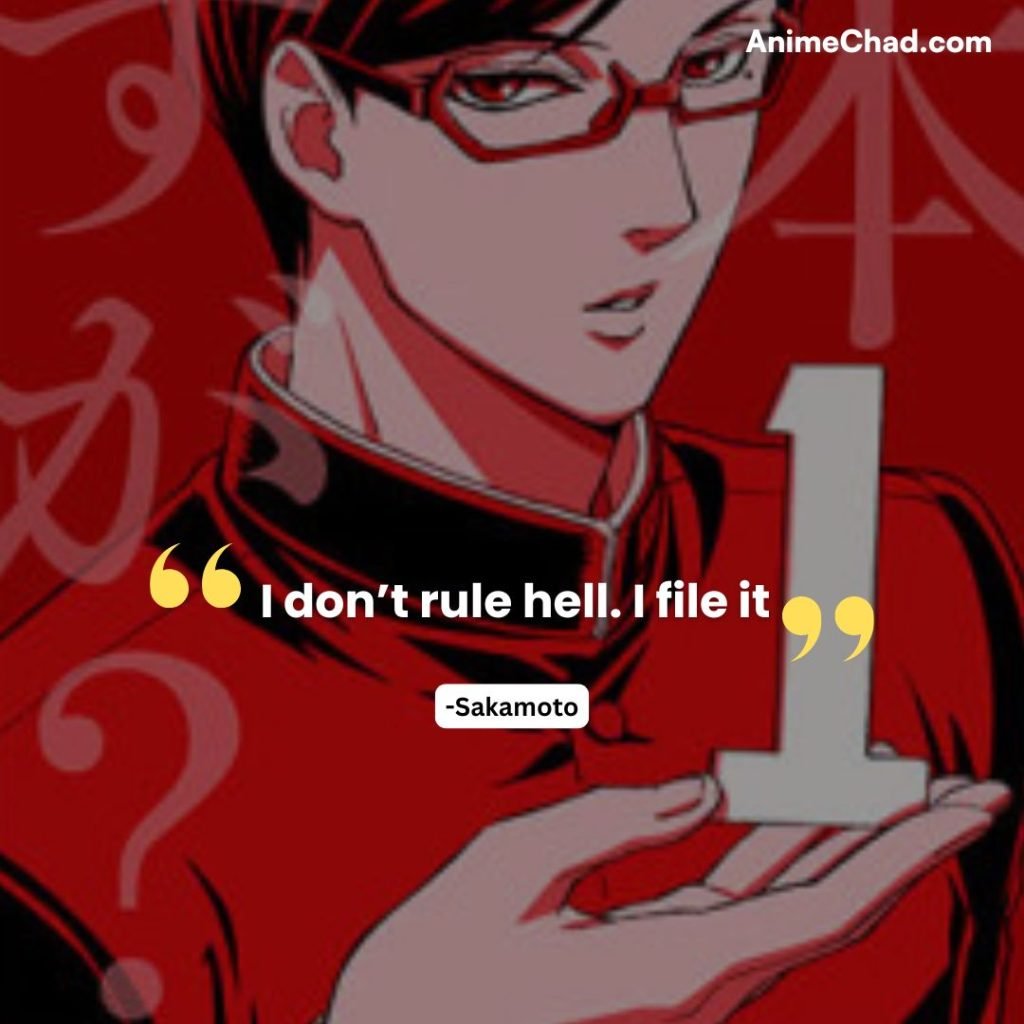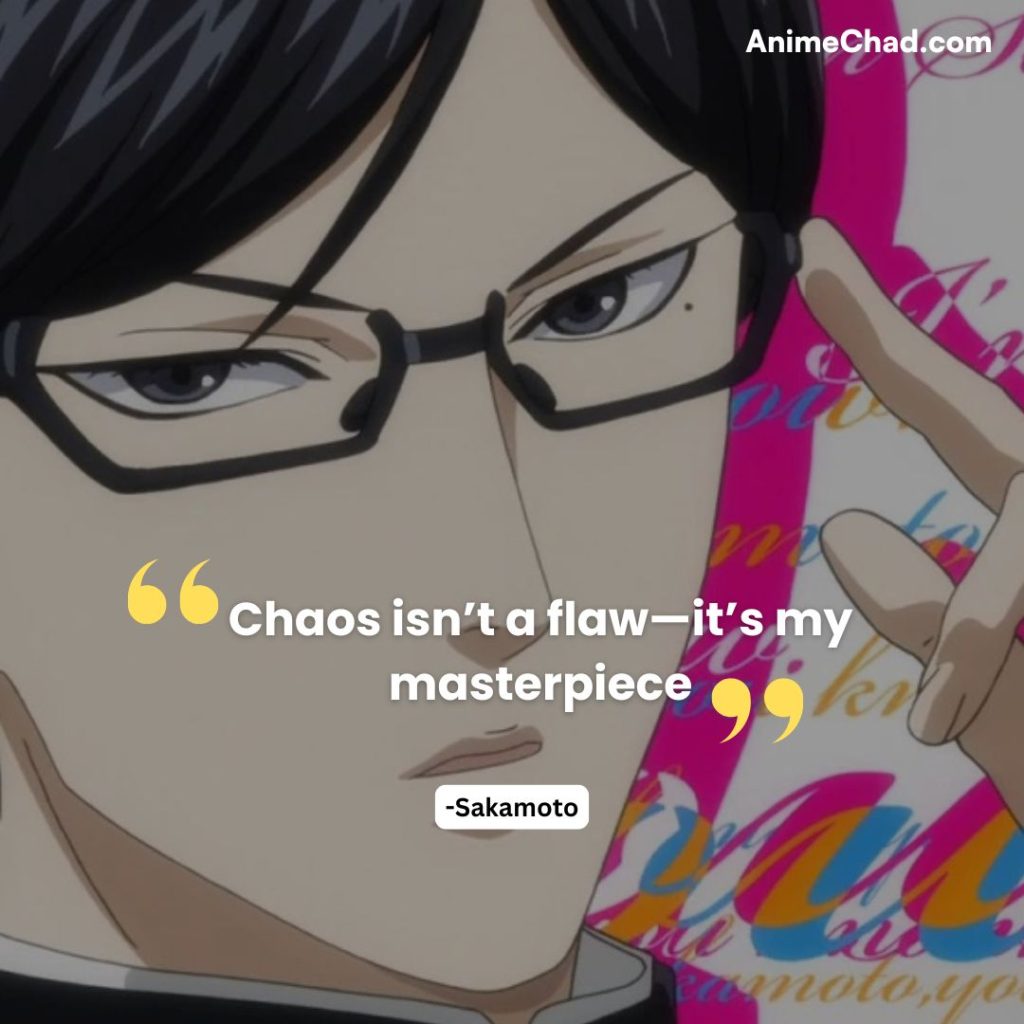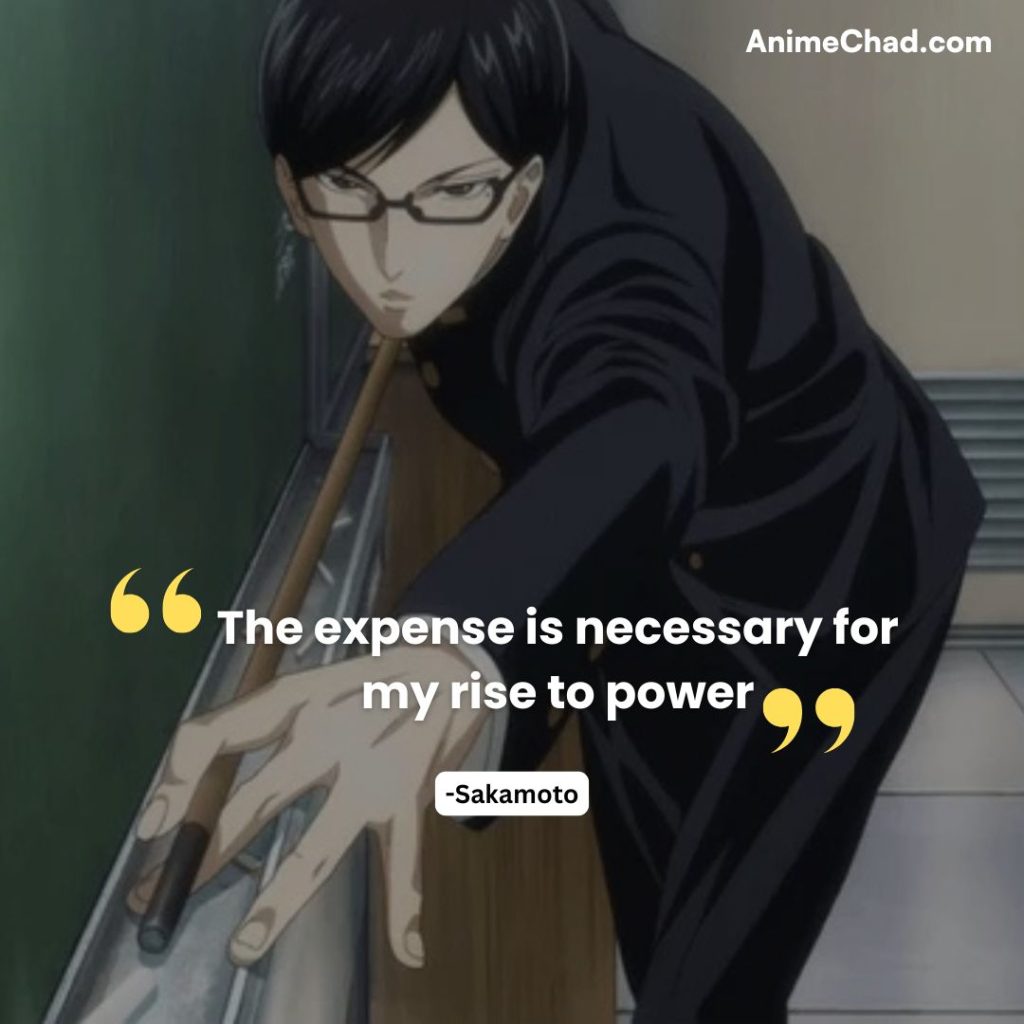Haven’t You Heard? I’m Sakamoto follows the enigmatic high schooler Sakamoto, whose unparalleled coolness and unflappable demeanor turn mundane situations into absurdly stylish triumphs.
The series blends surreal humor, social satire, and heartfelt moments, exploring themes of nonconformity, resilience, and the art of effortless grace.
This collection highlights quotes that encapsulate Sakamoto’s charm and the show’s unique comedic genius.
Careful, careful
Episode 1 (Sakamoto of Class 1-2)
Sakamoto
Sakamoto’s mantra while balancing on a desk edge, symbolizing his meticulous approach to even trivial tasks.
Even demons need vacation days
Episode 5 (Softball Throwing)
Shirō
A deadpan remark about workplace burnout, reflecting the series’ satirical take on societal expectations.
Punishment isn’t cruelty—it’s education
Episode 12 (So Long, Sakamoto-kun)
Sakamoto
Justifies his unconventional discipline methods, blending moral ambiguity with dark humor.
Efficiency requires occasional cruelty
Episode 4 (Is Sakamoto A Pervert?)
Sakamoto
Defends harsh tactics during a staffing crisis, showcasing his utilitarian philosophy.
Hell runs on rules, not goodwill
Episode 1 (Sakamoto of Class 1-2)
Sakamoto
Establishes his pragmatic worldview during a confrontation with bullies.
Winning dirty is still winning
Episode 5 (Softball Throwing)
Sakamoto
Justifies his unorthodox victory in a softball challenge, emphasizing results over ethics.
A goldfish’s memory lasts seven seconds. Yours should be shorter
Episode 3 (The Gopher, Sakamoto)
Sakamoto
A icy threat to a forgetful subordinate, highlighting his zero tolerance for incompetence.
Demons don’t apologize. We invoice
Episode 10 (Demon Lord)
Sakamoto
Blends corporate humor with supernatural lore, defining transactional ethics.
The louder we play, the quieter their voices become
Episode 8 (The Cultural Festival is Gloomy)
Sakamoto
Metaphor for using creativity to drown out negativity during the school festival chaos.
Fear isn’t punishment—it’s incentive
Episode 5 (Softball Throwing)
Sakamoto
Explains psychological tactics to reform bullies, aligning torment with growth.
Heroes die first. I’d rather be a legend
Episode 6 (Go Home Rules)
Sakamoto
A cynical retort to heroism, emphasizing survival over glory.
True rebellion is outlasting everyone
Episode 12 (So Long, Sakamoto-kun)
Sakamoto
Final advice to Hayabusa, cementing his legacy as an unyielding icon.
Laugh at your enemies… then crush them
Episode 7 (Is Sakamoto Really A Pervert?)
Sakamoto
Strategizes against rivals, blending humor with ruthless efficiency.
My patience has a receipt
Episode 3 (The Gopher, Sakamoto)
Sakamoto
Retort to a complaining classmate, merging accounting humor with authority.
Nostalgia is Hell’s cheapest torture
Episode 9 (The Meeting Between Sakamoto and Me)
Nasubi
A poignant critique of sentimentality during a soul’s punishment.
Protect your friends… even if it kills you
Episode 7 (Is Sakamoto Really A Pervert?)
Sakamoto
Defends Kubota during a snowball fight, underscoring loyalty over logic.
Overwork? That’s a promotion
Episode 7 (Is Sakamoto Really A Pervert?)
Sakamoto
Satirizes corporate exploitation while mentoring a stressed colleague.
Silence is compliance
Episode 2 (I Want to Protect, Rather Than Be Protected)
Sakamoto
Challenges passive acceptance of bullying during a fast-food job arc.
You think heaven’s better? Try their paperwork
Episode 8 (The Cultural Festival is Gloomy)
Hakutaku
Mocks celestial bureaucracy, mirroring Sakamoto’s disdain for inefficiency.
Repentance is a luxury. Payment is mandatory
Episode 12 (So Long, Sakamoto-kun)
Sakamoto
Prioritizes accountability over moral growth during Fukase’s downfall.
Legends are just failures with good storytellers
Episode 10 (Demon Lord)
Hakutaku
Demystifies mythic figures, aligning with the series’ subversion of folklore.
I don’t rule hell. I file it
Episode 1 (Sakamoto of Class 1-2)
Sakamoto
Defines his role as an administrator, not a conqueror, in the series’ opener.
Chaos isn’t a flaw—it’s my masterpiece
Episode 8 (The Cultural Festival is Gloomy)
Sakamoto
Declares his philosophy while orchestrating a chaotic yet successful school event.
The expense is necessary for my rise to power
Episode 7 (Is Sakamoto Really A Pervert?)
Sakamoto
Grandiose justification for mundane actions, epitomizing his absurd charm.
I’d rather be a disaster than a masterpiece
Episode 12 (So Long, Sakamoto-kun)
Sakamoto
Final defiance of societal validation before departing for America.
Why These Quotes Resonate
These lines encapsulate Haven’t You Heard? I’m Sakamoto’s blend of deadpan humor, social critique, and existential wit.
From Sakamoto’s icy pragmatism to Nasubi’s grim observations, each quote reinforces the series’ core theme: true coolness lies not in perfection, but in embracing life’s absurdity with unshakable poise.
Their balance of style and substance makes them timeless anchors to Sakamoto’s legacy.


